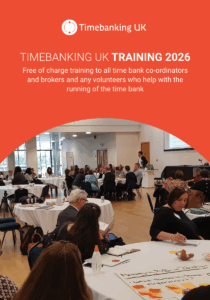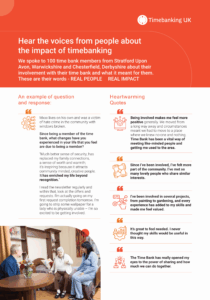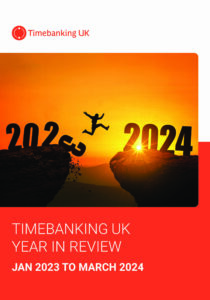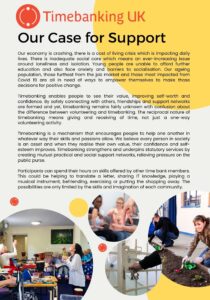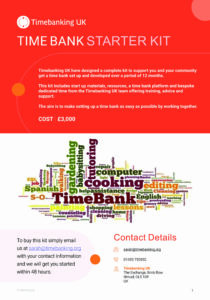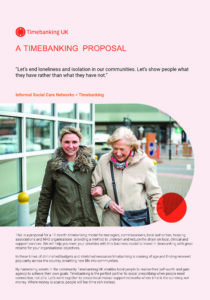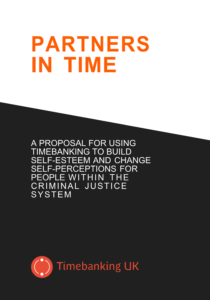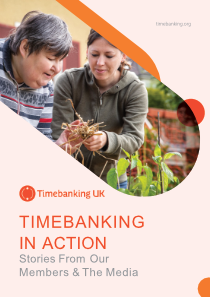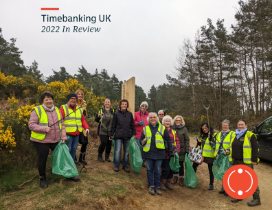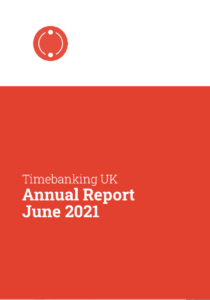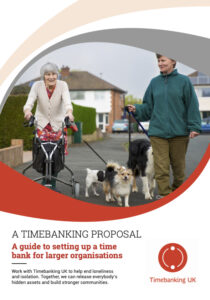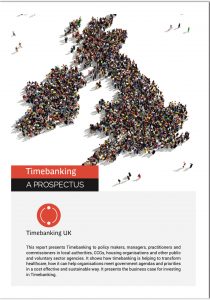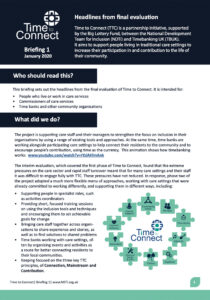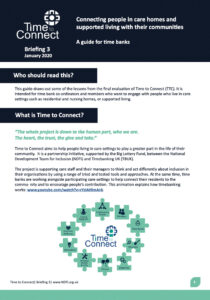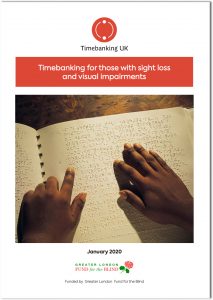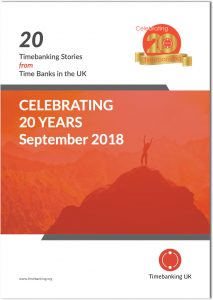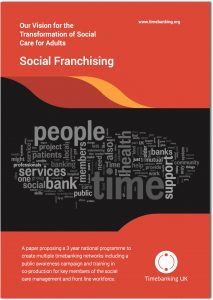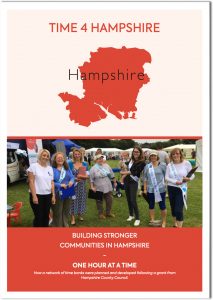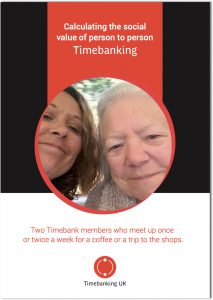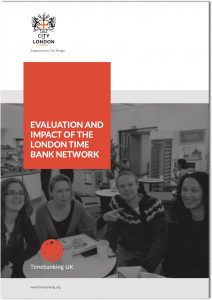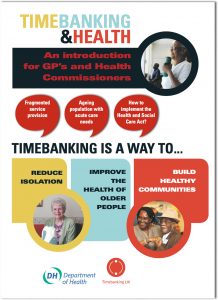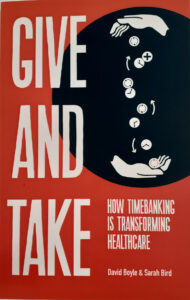Timebanking UK has produced a range of useful publications that give the background to timebanking and offer you guidance and support in setting up and running your time bank, and all of our scheduled training for 2026 is found in the document at the top.
Training updated for 2026
The 2026 TBUK training schedule
Timebanking UK’s training schedule for 2026, use the document to find the training you would like and follow the links inside to book your place on the sessions or find out more.
Hear the voices from people about the impact of timebanking
We spoke to 100 time bank members from Stratford Upon Avon, Warwickshire and Chesterfield, Derbyshire about their involvement with their time bank and what it meant for them.
These are their words – REAL PEOPLE REAL IMPACT
Our case for support
How our work improves lives and why you should get involved.
(updated for 2024).
Get ahead with our Timebanking starter kit
Our handy kit takes all of the worry out of getting started.
A Timebanking proposal 23/24
An outline of the process and benefits of setting up a time bank within your community or organisation. A Timebanking Proposal is aimed at NHS Clinical Commissioning Groups, councils, faith groups, charities and private companies who wish to incorporate timebanking principles into their work in order to build happier, healthier and better connected communities or service users. Updated for 2023/2024.
Timebanking: A Practical Tool for Rebuilding Community Trust and Supporting Social Mobility
Timebanking UK’s CEO writes a letter to the Guardian highlighting how timebanking can serve as a powerful tool in the rebuilding process after the recent unrest and the acts of violence that have shaken communities across the country.
Partners in Time
A proposal for using timebanking to build self-esteem and change self-perceptions for people within the criminal justice system
A Timebanking Proposal 2020
An outline of the process and benefits of setting up a time bank within your community or organisation. A Timebanking Proposal is aimed at NHS Clinical Commissioning Groups, councils, faith groups, charities and private companies who wish to incorporate timebanking principles into their work in order to build happier, healthier and better connected communities or service users.
Timebanking – A Prospectus
This document introduces timebanking to policymakers, practitioners and commissioners in local authorities, CCGs, housing organisations and other public and voluntary sector agencies. It explains how timebanking is helping to transform healthcare, and how it can help organisations meet government agendas and priorities in a cost-effective and sustainable way.
Time to Connect – Final Evaluation
Published in 2020, this is the final evaluation report of the Time to Connect (TTC) project, a partnership initiative, supported by the Big Lottery Fund, between the National Development Team for Inclusion (NDTi) and Timebanking UK. It aimed to support people living in traditional care settings to increase their participation in their local community life.
Connecting People in Care Homes and Supported Living with their Communities
This guide sets out of some the lessons from the final evaluation of the Time to Connect (TTC) project – a collaboration between NDTi and Timebanking UK. It is intended for time bank coordinators and members who want to engage with people living in care settings such as residential and nursing homes, or supported living accommodation.
Timebanking for Those with Sight Loss and Visual Impairments
Thanks to funding from the Greater London Fund for the Blind, Timebanking UK has created resources which enable people with sight loss to become involved in timebanking. This report explains more about the materials we used and our plans for further development.
20 Timebanking Stories
Produced to celebrate 20 years of timebanking in the UK, 20 Timebanking Stories presents a range of case studies that vividly illustrate the impact of timebanking in our communities.
Social Franchising Report
This paper presents our vision for the transformation of social care for adults, a three-year national programme to create timebanking networks, including a public awareness campaign and training in coproduction for social care managers and key workers.
Time for Hampshire
This report explains how a grant from Hampshire County Council was used to plan and develop a network of time banks, resulting in more community engagement across the county.
Calculating the Social Value of Person to Person Timebanking
Training
In this case study, our time bank in Barnet assessed the social return on investment (SROI) of timebanking activity.
Evaluation and Impact of the London Time Bank Network
Five London time banks took part in this social evaluation project conducted in collaboration with the City of London and City Bridge. It assessed impact according to a range of outcome; a key finding was that the time banks achieved a combined social value figure of over £3 million.
Timebanking and Health
A useful introduction to timebanking and how it improves health outcomes, aimed at GPs, Clinical Commissioning Groups and other health service commissioners.
Give and Take
I am text block. Click edit button to change this text. Lorem ipsum dolor sit amet, consectetur adipiscing elit. Ut elit tellus, luctus nec ullamcorper mattis, pulvinar dapibus leo.
Published in 2014, David Boyle and Sarah Bird’s book explores the impact of a ground-breaking experiment to introduce timebanking within health and social care. The Department of Health-funded project aimed to address the fragmentation of service provision and the increasing needs of older people. By the end of the project in 2013, over 1,500 people had taken part in time exchanges, with almost 29,000 hours having been successfully exchanged.
I am text block. Click edit button to change this text. Lorem ipsum dolor sit amet, consectetur adipiscing elit. Ut elit tellus, luctus nec ullamcorper mattis, pulvinar dapibus leo.


